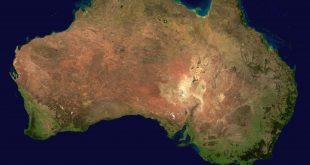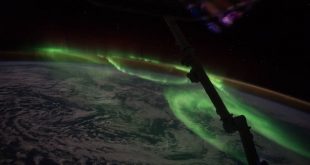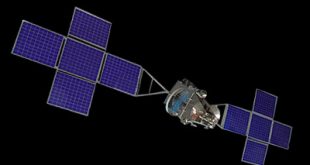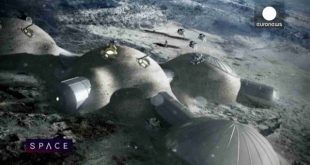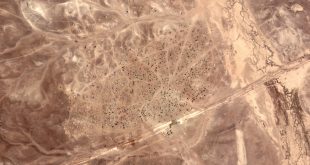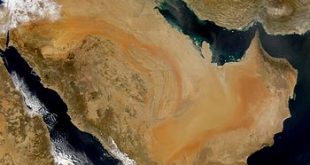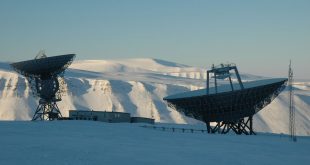Recent press reports quote the head of the Iranian Space Agency, Mohsen Bahrami, as saying that he would like to see Iran cooperate with the American space agency, NASA. ThorGroup’s Chairman and President, Dr. John B. Sheldon, argues that while Mr. Bahrami’s sentiments are noble, political realities mean space cooperation …
Read More »Innovation in outer space, it’s not rocket science – Part 2: The case for Australian space
Australia’s space industry needs to catch up with the rest of the world. Andrea Boyd, Flight Operations Engineer for the International Space Station in Germany, explained why at the recent GAP Summit in Part Two of her case for a more proactive Australian space policy and programme. Part One can be …
Read More »Innovation in outer space, it’s not rocket science – Part 1
SpaceWatch Middle East is privileged to republish this article by Andrea Boyd. The geopolitical impact of the topic also has a huge value in the Middle East region. Australia is the only OECD country without a national space agency. Andrea Boyd, an International Space Station Flight Operations Engineer at the …
Read More »Still waiting to launch: Iran’s space programme and the ‘Resistance Economy’
Remember Iran’s potential as a significant regional player in space? So do we, but as ThorGroup’s Chairman Dr. John B. Sheldon points out, that potential will mean nothing without significant economic and political reform from Tehran. So far, though, there is little sign that much-needed reform is in the offing …
Read More »Challenges and Opportunities for a Kuwaiti Space Programme, Part I
As Kuwait considers its space future, SpaceWatch Middle East contributor Ghanim Alotaibi, a Kuwaiti engineer and Space Generation Advisory Council member, examines some of the challenges Kuwaiti leaders will have to address in the first of a series of articles that will be published in the coming weeks. Introduction Two years ago, a …
Read More »Middle Eastern Lunar Missions: the Role of the Moon in the Middle East’s Spacefaring Future
The Moon is rapidly becoming the destination of choice for space agencies and companies since it poses less technical and financial risk than going directly to Mars. ThorGroup GmbH’s intern in Washington, DC – Nickolas J. Boensch – explores the emerging ‘Moon Rush’ and the possible roles and opportunities for …
Read More »Refugee camps at Syrian-Jordanian border have expanded rapidly, according to UN analysis of UrtheCast satellite imagery
The Syrian Civil War continues unabated, as does its human suffering. Satellite technologies play an important role in monitoring the Syrian conflict and are used by humanitarian agencies to try and help those who are suffering the most. Theras Wood of Canadian Earth observation company UrtheCast provides an account of …
Read More »Satellite spectrum issues for the Middle East: an interview with Hans-Juergen Tscheulin
Space and satellites are often treated as an intrinsically exciting and glamorous field of activity. Yet the issue of spectrum requirements, regulatory filings, and spectrum management are all too often considered to be unglamorous, and as a result are unfairly and dangerously ignored. The reality is that without a competent …
Read More »The Necessity of Coherent Space Policy in the Shadow of the Iranian Resurgence
Are Middle East governments ready to counter a resurgent Iran in space? American space law expert and policy consultant, Michael J. Listner, makes the case for more countries in the region to develop comprehensive national space policies so that their defence establishments can adequately prepare defensive measures in the space domain. …
Read More »Current issues in Space Situational Awareness and Space Traffic Management
The geostationary Earth orbit (GEO) satellite belt is a unique location above the earth affording a continuous line-of-sight to satellite uplink and downlink stations. The volume defined by this belt is large, but available slots are limited. During the last fifty years of the space age, this volume has become …
Read More » SpaceWatch.Global An independent perspective on space
SpaceWatch.Global An independent perspective on space


